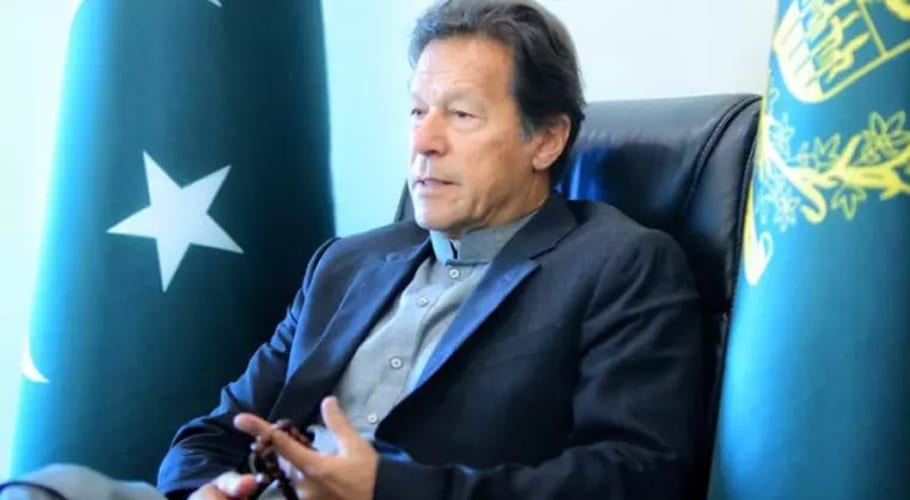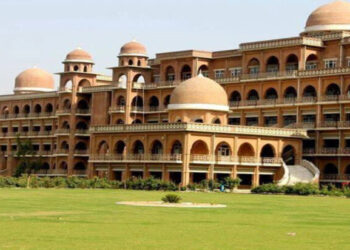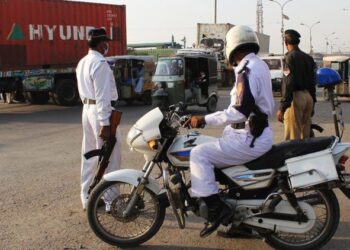The federal government of Pakistan Tehreek-e-Insaf (PTI) under the leadership of Prime Minister Imran Khan is taking steps to fulfill the promises with the passage of time as another program ‘no one sleeps hungry’ to be launched today.
Under this program, labourers and deserving persons on roads will also be provided food through mobile vans. The program will be expanded across the country with the passage of time.
Regarding the initiative, Prime Minister Imran Khan said that the success of Ehsaas’ “Koyee Bhuka Naa Soyai” Programme would be a model for the state of Medina not only in Pakistan but the entire world. PM Imran called for comprehensive planning to introduce such systems which ensure direct and easy reach to the deserving.
The slogan of the state of Medina
the recent general polls in the country were indicative of a politico-social sea-change. A collective evolution triggered by a new consciousness and destroying of old constrictive mindsets that had kept this nation trapped in a post-colonial status quo.
In this sense, Pakistan is the first Islamic country to change to new paradigms of continuation shaped by the welfare model originally conceived in the Prophet’s (PBUH) state of Medina and later practiced in the West chiefly in Scandinavia.
The whole credit of facilitating this transition goes to Prime Minister Imran Khan, who is the only leader that has made the dignified governance precepts of Islam – a beacon for shaping Pakistan’s fortune.
This is a silent revolution of huge import for Pakistan and humankind at large. It enmeshes democratic governance with the true socio-economic ambitions of the nation and gives it credibility with a distinctive and very rare sincerity of purpose.
Steps for making Pakistan a welfare state
Prime Minister Imran Khan Khan said his government is committed to make Pakistan a welfare state and several initiatives including the Ehsaas Programme and the government’s health card scheme provides social security to the poor segment of society. The prime minister said these projects will move us closer to our goal of making Pakistan a welfare state.
He said that the well-being of the poor and deserving people is the foremost priority of the government, adding that the government is making efforts to help deserving people in consultation and cooperation with all stakeholders.
Ehsaas program
On April 9, the distribution of cash assistance under the Ehsaas Emergency Cash programme was started, on the special instruction of Prime Minister Imran Khan.
Ehsaas programme had initiated the cash stipend payments to provide instant relief to the daily wagers whose livelihoods were badly affected due to the COVID-19 pandemic. This assistance was meant to help them buy rations.
The initiative was taken in order to financially aid more than 12 million deserving families whose incomes have been adversely affected by the coronavirus lockdown.
Model Langar Khana
The incumbent government inaugurated the Model Langar Khana in Islamabad on 07, October 2019, one of the projects of the government’s Model Programme that aims to combat hunger throughout the country.
Shelter home Programme
The government introduced a shelter home program near the railway station in Lahore on 10, November 2018. Those shelter homes will provide a roof to poor people.
Naya Pakistan Housing Scheme
PTI government has also launched the Naya Pakistan Housing Scheme on July 15, 2019. This project of Pakistan government to provide 5 million houses to the homeless people of the country. Under this scheme, homes will be provided to poor Pakistanis in easy installments.
Won’t anyone really go hungry?
Making it possible to protect the rights of every citizen in any country, including Pakistan, is the biggest challenge for any government. The government under the leadership of Prime Minister Imran Khan is taking steps for the betterment of people despite fight against evil forces. Undoubtedly, the ‘no one will go hungry’ program is another step towards a welfare state
The fact is that PM Imran is determined while true work has just in progress. The status quo has been challenged and has however to be uprooted. The vast majority of forecasters and critics continue in their skepticism of the magnitude of change. The old political guard and vested interest groups have been mounting on a movement to resist change.
They are unsuccessful to comprehend that the commonplace people particularly the youth- a new generation- have moved on. It is no longer probable to remake the past. The future predictors are overjoyed and for the first time see chance and hope for their ambitions being reflected in the governance of the state.


































